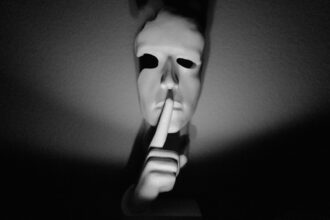When you think about cults, it’s easy to imagine a group of people gathered around a charismatic leader, but the effects of cult involvement run much deeper than that surface-level image. Being part of a cult can lead to profound psychological and emotional changes that can linger long after you’ve left. You may find yourself grappling with feelings of confusion, guilt, and isolation.
The indoctrination process often strips away your sense of self, leaving you questioning your beliefs and values. This disorientation can make it challenging to reintegrate into society and reconnect with your true identity. The impact of cult involvement can also manifest in your relationships.
You might have been encouraged to sever ties with family and friends outside the group, leading to a sense of loneliness and abandonment. The emotional manipulation and control exerted by cult leaders can create a dependency that makes it difficult for you to trust others or form new connections. Understanding these effects is the first step toward healing and reclaiming your life.
Recognizing that you are not alone in this experience can provide a sense of comfort as you begin to navigate the complexities of your post-cult existence.
Key Takeaways
- Cult involvement can have lasting effects on personal identity, social connections, psychological trauma, and personal beliefs and values.
- Reclaiming personal identity involves rediscovering who you are outside of the cult and embracing your individuality.
- Rebuilding social connections is important for finding support and a sense of belonging after leaving a cult.
- Healing from psychological trauma may require professional support and therapy to address the emotional and mental impact of cult involvement.
- Rediscovering personal beliefs and values involves exploring and redefining your own moral compass and principles.
Reclaiming Personal Identity
Reclaiming your personal identity after leaving a cult is a crucial part of your healing journey. You may have spent years conforming to the beliefs and expectations imposed by the group, which can leave you feeling like a shell of your former self. To rediscover who you are, it’s essential to engage in self-reflection and exploration.
This process may involve revisiting your interests, hobbies, and passions that were set aside during your time in the cult. By reconnecting with activities that bring you joy, you can begin to rebuild a sense of self that is authentic and true to who you are. Additionally, it’s important to challenge the beliefs that were instilled in you during your time in the cult.
You may have internalized messages that made you feel unworthy or incapable of making decisions for yourself. As you work to reclaim your identity, consider journaling or engaging in creative expression as a way to articulate your thoughts and feelings. This practice can help you process your experiences and clarify your values, ultimately leading to a stronger sense of self.
Remember, this journey is not linear; it’s okay to take your time as you navigate the complexities of rediscovering who you are.
Rebuilding Social Connections
Rebuilding social connections after leaving a cult can feel daunting, especially if you’ve been isolated from friends and family for an extended period. The first step is to reach out to those who care about you, even if it feels uncomfortable at first. You might find that some relationships have changed or that people have moved on, but there are also those who will be eager to welcome you back into their lives.
Start by reconnecting with individuals who were supportive before your involvement in the cult; they can provide a sense of familiarity and comfort as you transition back into social settings. In addition to reconnecting with old friends, consider seeking out new social opportunities. Joining clubs, attending community events, or participating in support groups for former cult members can help you meet like-minded individuals who understand your experiences.
Building new relationships takes time and effort, but surrounding yourself with positive influences can significantly enhance your emotional well-being. As you engage with others, remember to be patient with yourself; rebuilding social connections is a gradual process that requires vulnerability and openness.
Healing from Psychological Trauma
| Healing from Psychological Trauma | Statistics |
|---|---|
| Percentage of individuals who experience trauma | 70% |
| Percentage of trauma survivors who develop PTSD | 20% |
| Percentage of trauma survivors who recover with treatment | 80% |
| Number of therapy sessions typically needed for recovery | 10-20 |
Healing from psychological trauma is an essential aspect of recovering from cult involvement. The experiences you endured may have left deep emotional scars that require attention and care. It’s important to acknowledge the trauma rather than suppress it; doing so allows you to process your feelings and begin the healing journey.
You might find it helpful to engage in practices such as mindfulness or meditation, which can provide a sense of grounding and help you manage anxiety or intrusive thoughts related to your past experiences. Therapeutic interventions can also play a significant role in your healing process. Working with a mental health professional who specializes in trauma can provide you with tools and strategies to cope with the emotional aftermath of cult involvement.
Therapy can create a safe space for you to explore your feelings, confront painful memories, and develop healthier coping mechanisms. Remember that healing is not a linear journey; there will be ups and downs along the way, but each step forward is a testament to your resilience and strength.
Rediscovering Personal Beliefs and Values
After leaving a cult, one of the most liberating yet challenging tasks is rediscovering your personal beliefs and values. The dogma imposed by the cult may have overshadowed your own thoughts and feelings for years, leaving you unsure of what you truly believe. To embark on this journey, consider exploring various philosophies, religions, or ideologies that resonate with you.
Reading books, attending lectures, or engaging in discussions can help broaden your perspective and allow you to form your own opinions. As you explore different belief systems, take time for introspection. Reflect on what values were important to you before joining the cult and how they may have changed since then.
Journaling can be an effective tool for this process; writing down your thoughts can help clarify your beliefs and provide insight into what truly matters to you. Embrace the freedom to question everything without fear of judgment; this exploration is an essential part of reclaiming your autonomy and establishing a belief system that aligns with your authentic self.
Establishing Boundaries and Asserting Independence
Establishing boundaries is crucial for asserting your independence after leaving a cult. During your time in the group, you may have been conditioned to prioritize the needs and desires of others over your own. Learning to set healthy boundaries allows you to protect your emotional well-being and reclaim control over your life.
Start by identifying areas where you feel uncomfortable or overwhelmed; these are often indicators of where boundaries need to be established. Communicating your boundaries effectively is equally important. Practice expressing your needs clearly and assertively without feeling guilty or apologetic.
This may involve saying no to requests that don’t align with your values or taking time for yourself when needed. Remember that setting boundaries is not selfish; it’s an essential aspect of self-care that enables you to cultivate healthier relationships moving forward. As you practice asserting yourself, you’ll likely find that your confidence grows, empowering you to navigate life on your own terms.
Seeking Professional Support and Therapy
Seeking professional support is a vital step in your recovery journey after leaving a cult. The complexities of your experiences may require guidance from someone who understands the unique challenges faced by former cult members. A therapist specializing in trauma or cult recovery can provide valuable insights and coping strategies tailored to your needs.
They can help you process the emotional turmoil associated with leaving the group while offering tools for rebuilding your life. In therapy, you’ll have the opportunity to explore various aspects of your identity, relationships, and beliefs in a safe environment. This support can be instrumental in helping you navigate feelings of guilt, shame, or confusion that may arise as you adjust to life outside the cult.
Additionally, group therapy or support groups specifically for former cult members can foster a sense of community and understanding among individuals who share similar experiences. Connecting with others who have walked a similar path can provide validation and encouragement as you work toward healing.
Developing Critical Thinking Skills
Developing critical thinking skills is essential for navigating life after leaving a cult. Cults often rely on manipulation and dogma to control their members’ thoughts and behaviors, making it crucial for you to cultivate an independent mindset moving forward. Start by questioning information presented to you—whether it’s from media sources, social circles, or even new belief systems—and seek evidence before forming conclusions.
This practice will empower you to make informed decisions based on logic rather than blind faith. Engaging in discussions with others who hold different viewpoints can also enhance your critical thinking abilities. By considering alternative perspectives, you’ll learn to analyze arguments more effectively and develop a more nuanced understanding of complex issues.
Additionally, reading books on critical thinking or participating in workshops can provide valuable tools for honing these skills. As you become more adept at evaluating information critically, you’ll find yourself better equipped to navigate the world outside the confines of the cult.
Finding Purpose and Meaning in Life
Finding purpose and meaning in life after leaving a cult is an empowering journey that allows you to redefine what fulfillment looks like for you. The experiences you’ve endured may have left you feeling lost or directionless, but this is an opportunity for rebirth—a chance to explore new passions and aspirations that resonate with your authentic self. Start by reflecting on what brings you joy or fulfillment; consider volunteering for causes that matter to you or pursuing hobbies that ignite your creativity.
Your interests may shift as you gain new insights about yourself and the world around you.
Surround yourself with supportive individuals who encourage exploration and growth; their presence can inspire you as you carve out a new path filled with purpose.
Navigating Family and Relationships After Leaving a Cult
Navigating family dynamics after leaving a cult can be particularly challenging, especially if those relationships were strained during your involvement in the group. It’s essential to approach these interactions with patience and understanding—both for yourself and for those who may not fully grasp what you’ve experienced. Open communication is key; consider sharing your journey with family members who are willing to listen while setting boundaries around discussions that may trigger discomfort.
Rebuilding trust takes time; some family members may need space to process their feelings about your departure from the cult. Be prepared for mixed reactions—some may be supportive while others might struggle with their emotions regarding your choices. Focus on nurturing relationships that feel safe and affirming while allowing yourself grace as you navigate this complex terrain.
Remember that healing is a gradual process; give yourself permission to take things one step at a time as you work toward rebuilding connections with loved ones.
Creating a New Life Path and Future Goals
Creating a new life path after leaving a cult involves envisioning what you want for yourself moving forward. This process begins with setting realistic goals that align with your values and aspirations—whether they pertain to career ambitions, personal growth, or relationships. Take time to reflect on what truly matters to you; consider writing down short-term and long-term goals as a way to clarify your vision for the future.
As you embark on this journey toward creating a fulfilling life, remember that setbacks are normal along the way; embrace them as opportunities for growth rather than obstacles. Surround yourself with supportive individuals who encourage your aspirations while holding yourself accountable for pursuing them actively. Celebrate small victories as they come; each step forward is an affirmation of your resilience and determination to forge a new path filled with hope and possibility.
In conclusion, navigating life after leaving a cult is undoubtedly challenging but also filled with opportunities for growth and self-discovery. By understanding the effects of cult involvement, reclaiming personal identity, rebuilding social connections, healing from trauma, rediscovering beliefs, establishing boundaries, seeking support, developing critical thinking skills, finding purpose, navigating relationships, and creating future goals, you’re embarking on a transformative journey toward reclaiming autonomy over your life—a journey marked by resilience, strength, and hope for what lies ahead.
Reclaiming autonomy after leaving a cult can be a challenging journey, as individuals often struggle to rediscover their sense of self and personal freedom. A related article that delves into the psychological aspects of this process can be found on Unplugged Psych. This resource offers insights into the mental health challenges faced by former cult members and provides strategies for rebuilding one’s identity and autonomy. For more information, you can read the article on their website by following this link: Unplugged Psych Article.
WATCH NOW! 😱😱😱😱😱The Secret Psychology Cults Use on Anyone
FAQs
What is a cult?
A cult is a group or movement that is characterized by its devotion to a particular person, object, or set of beliefs, often with controlling or manipulative tactics.
What are some common characteristics of cults?
Common characteristics of cults include authoritarian leadership, isolation from outside influences, manipulation and control of members, and a focus on a specific belief system or ideology.
How does one reclaim autonomy after leaving a cult?
Reclaiming autonomy after leaving a cult often involves seeking therapy or counseling to address the psychological and emotional impact of cult involvement, reconnecting with friends and family outside of the cult, and rebuilding a sense of self and personal agency.
What are some challenges faced by individuals trying to reclaim autonomy after leaving a cult?
Challenges faced by individuals trying to reclaim autonomy after leaving a cult may include feelings of guilt or shame, difficulty adjusting to life outside of the cult, and ongoing psychological and emotional trauma from their experiences within the cult.
Are there support resources available for individuals leaving cults?
Yes, there are support resources available for individuals leaving cults, including therapy and counseling services, support groups for former cult members, and online resources and communities for those seeking to reclaim their autonomy after leaving a cult.



